第38章
Instinctively he would seek to throw in household goods, even gold and silver, all the city held, before he sacrificed its works of art!
Men's bodies are our woman's works of art.Given to us power of control, we will never carelessly throw them in to fill up the gaps in human relationships made by international ambitions and greeds.The thought would never come to us as woman, "Cast in men's bodies; settle the thing so!" Arbitration and compensation would as naturally occur to her as cheaper and simpler methods of bridging the gaps in national relationships, as to the sculptor it would occur to throw in anything rather than statuary, though he might be driven to that at last!
This is one of those phases of human life, not very numerous, but very important, towards which the man as man, and the woman as woman, on the mere ground of their different sexual function with regard to reproduction, stand, and must stand, at a somewhat differing angle.The physical creation of human life, which, in as far as the male is concerned, consists in a few moments of physical pleasure; to the female must always signify months of pressure and physical endurance, crowned with danger to life.To the male, the giving of life is a laugh; to the female, blood, anguish, and sometimes death.Here we touch one of the few yet important differences between man and woman as such.
The twenty thousand men prematurely slain on a field of battle, mean, to the women of their race, twenty thousand human creatures to be borne within them for months, given birth to in anguish, fed from their breasts and reared with toil, if the numbers of the tribe and the strength of the nation are to be maintained.In nations continually at war, incessant and unbroken child-bearing is by war imposed on all women if the state is to survive; and whenever war occurs, if numbers are to be maintained, there must be an increased child-bearing and rearing.This throws upon woman as woman a war tax, compared with which all that the male expends in military preparations is comparatively light.
The relations of the female towards the production of human life influences undoubtedly even her relation towards animal and all life."It is a fine day, let us go out and kill something!" cries the typical male of certain races, instinctively."There is a living thing, it will die if it is not cared for," says the average woman, almost equally instinctively.It is true, that the woman will sacrifice as mercilessly, as cruelly, the life of a hated rival or an enemy, as any male; but she always knows what she is doing, and the value of the life she takes! There is no light-hearted, careless enjoyment in the sacrifice of life to the normal woman; her instinct, instructed by practical experience, steps in to prevent it.She always knows what life costs; and that it is more easy to destroy than create it.
It is also true, that, from the loftiest standpoint, the condemnation of war which has arisen in the advancing human spirit, is in no sense related to any particular form of sex function.The man and the woman alike, who with Isaiah on the hills of Palestine, or the Indian Buddha under his bo-tree, have seen the essential unity of all sentient life; and who therefore see in war but a symptom of that crude disco-ordination of life on earth, not yet at one with itself, which affects humanity in these early stages of its growth: and who are compelled to regard as the ultimate goal of the race, though yet perhaps far distant across the ridges of innumerable coming ages, that harmony between all forms of conscious life, metaphorically prefigured by the ancient Hebrew, when he cried, "The wolf shall dwell with the lamb; and the leopard shall lie down with the kid; and the calf and the young lion and the fatling together, and a little child shall lead them!"--to that individual, whether man or woman, who has reached this standpoint, there is no need for enlightenment from the instincts of the child-bearers of society as such; their condemnation of war, rising not so much from the fact that it is a wasteful destruction of human flesh, as that it is an indication of the non-existence of that co-ordination, the harmony which is summed up in the cry, "My little children, love one another."But for the vast bulk of humanity, probably for generations to come, the instinctive antagonism of the human child-bearer to reckless destruction of that which she has at so much cost produced, will be necessary to educate the race to any clear conception of the bestiality and insanity of war.
War will pass when intellectual culture and activity have made possible to the female an equal share in the control and governance of modern national life; it will probably not pass away much sooner; its extinction will not be delayed much longer.
It is especially in the domain of war that we, the bearers of men's bodies, who supply its most valuable munition, who, not amid the clamour and ardour of battle, but singly, and alone, with a three-in-the-morning courage, shed our blood and face death that the battlefield may have its food, a food more precious to us than our heart's blood; it is we especially, who in the domain of war, have our word to say, a word no man can say for us.It is our intention to enter into the domain of war and to labour there till in the course of generations we have extinguished it.
If today we claim all labour for our province, yet more especially do we claim those fields in which the difference in the reproductive function between man and woman may place male and female at a slightly different angle with regard to certain phases of human life.